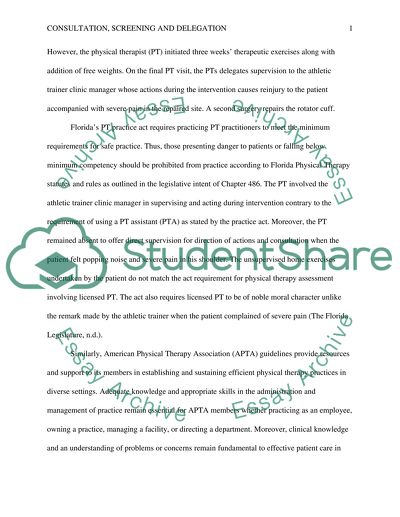Cite this document
(“Consultation, Screening and Delegation in Physical Therapy Case Study”, n.d.)
Retrieved from https://studentshare.org/health-sciences-medicine/1614095-consultation-screening-and-delegation-in-physical-therapy
Retrieved from https://studentshare.org/health-sciences-medicine/1614095-consultation-screening-and-delegation-in-physical-therapy
(Consultation, Screening and Delegation in Physical Therapy Case Study)
https://studentshare.org/health-sciences-medicine/1614095-consultation-screening-and-delegation-in-physical-therapy.
https://studentshare.org/health-sciences-medicine/1614095-consultation-screening-and-delegation-in-physical-therapy.
“Consultation, Screening and Delegation in Physical Therapy Case Study”, n.d. https://studentshare.org/health-sciences-medicine/1614095-consultation-screening-and-delegation-in-physical-therapy.


